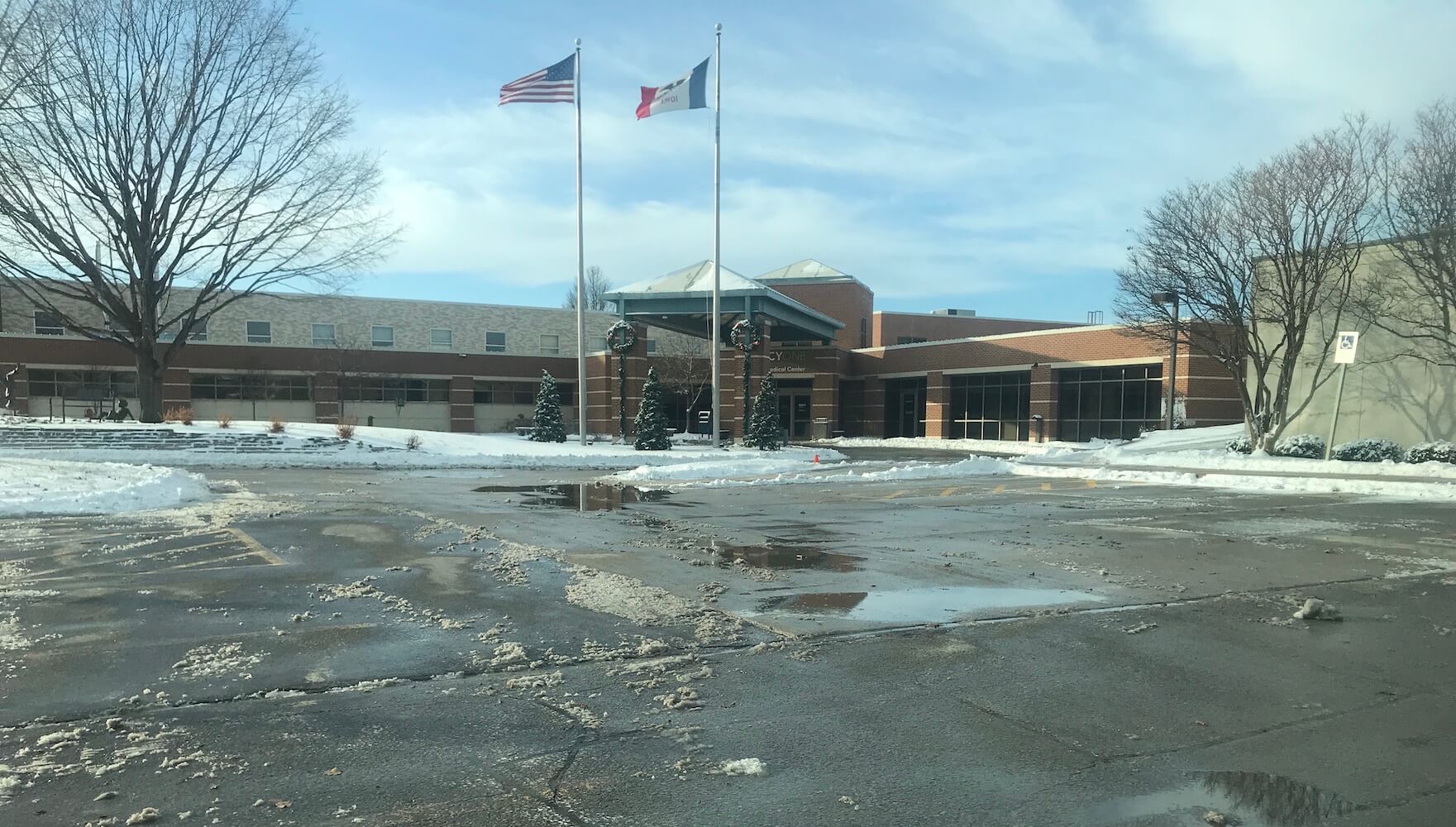
In Albia, home of former Iowa lieutenant governor Patty Judge, the nearest hospitals with intensive care capabilities are about 30 minutes away, in Centerville and Ottumwa.
Southern Iowa has reported only a handful of positive COVID-19 cases, but the possibility of outbreaks in rural communities has left Judge wondering, “do we have a response?”
“I think we’re being very naive if we think it is not down here because it’s some sort of distance from Des Moines or from Iowa City, which seems to be the hotbed,” Judge said.
As lieutenant governor from 2007-2011, Judge served as homeland security advisor during the response and recovery from devastating floods.
Watching Gov. Kim Reynolds at the State Emergency Operations Center in Johnston now gives her “deja vu” as she recalls how local, state and federal agencies came together in the past to combat the flooding emergency.
“This is really something very different than something any of us have ever seen before,” Judge said. “I don’t think any of us were around during the Spanish Flu (of 1918-20). This is new to us and I know that people are struggling to do the best job that they can.”
Judge, a retired registered nurse, knows what it takes to run an intensive care unit and the equipment needed far beyond the number of beds for patients.
“The truth of the matter is it’s not hard to have beds. We can take over a motel that’s full of beds,” Judge said. “It’s having equipped beds and trained medical personnel and having a place that has oxygen, that has the capacity for intravenous treatment and having someone that knows how to run a ventilator and has run a ventilator. I don’t think a ventilator is going to do anybody a whole lot of good if nobody knows how to operate it or to insert the breathing tube to hook it up.”
[inline-ad id=”1″]
In rural Iowa and in small towns across the country, attracting and retaining medical professionals already is a struggle. According to the Association of American Medical Colleges, in 2016 Iowa ranked 46th in the nation for the total number of active physicians per 100,000 people. Federal data show, as of September 2019, more than 600,000 Iowans live in a “Health Professional Shortage Area” for medical, dental or mental health care.
Though the majority of patients infected with COVID-19, the respiratory infection caused by the new coronavirus, do not require hospitalization, national health experts warn the United States has yet to experience the surge in severe cases that overwhelmed hospital systems in Italy and China over the last several weeks and months. This week the U.S. topped the world in the number of coronavirus infections, with at least 81,321, according to the New York Times.
As of Friday morning, Iowa has 235 confirmed cases of COVID-19 in 46 counties. Three people in Dubuque, Poweshiek and Allamakee counties have died due to the virus.
[inline-ad id=”0″]
Access to comprehensive health care services in rural America has dwindled for decades, Judge said, particularly beginning in the 1990s when “critical access hospitals” became the norm rather than full-scale general hospitals with obstetrics, intensive care and other vital services. Critical access hospitals staff an emergency room 24/7, but they have fewer beds than general hospitals and are limited on in-patient care.
“I think we’re in a strange and uncomfortable place in rural America because we’re kind of detached right now,” Judge said. “Maybe people above my pay grade have a good idea of what’s going to happen if and when it (COVID-19) migrates to a rural community or rural county; I just don’t know.”
By Elizabeth Meyer
Posted 3/27/20
Politics

It’s official: Your boss has to give you time off to recover from childbirth or get an abortion
Originally published by The 19th In what could be a groundbreaking shift in American workplaces, most employees across the country will now have...

Trump says he’s pro-worker. His record says otherwise.
During his time on the campaign trail, Donald Trump has sought to refashion his record and image as being a pro-worker candidate—one that wants to...
Local News

No more Kum & Go? New owner Maverik of Utah retiring famous brand
Will Kum & Go have come and gone by next year? One new report claims that's the plan by the store's new owners. The Iowa-based convenience store...

Here’s a recap of the biggest headlines Iowa celebs made In 2023
For these famous Iowans, 2023 was a year of controversy, career highlights, and full-circle moments. Here’s how 2023 went for the following Iowans:...




